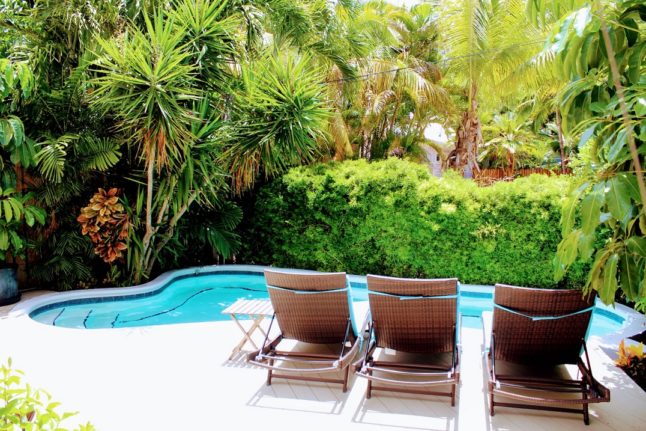If you are planning a renovation project in 2023 you’re likely looking at rising cost for materials and labour due to inflation – but there is one other cost to consider; taxes.
In France there is a one-off tax that has to be paid on certain building works, and the government has raised the rate for this.
The taxe d’aménagement, sometimes referred to as the garden shed tax, applies to all property development – construction, reconstruction and extension – of buildings that require planning permission or a building permit.
Garden sheds, swimming pools or extensions with a surface area of more than 5 square metres are subject to the development tax – although a 50 percent reduction is applied to the flat-rate values of certain buildings, particularly the first 100 square metres of main residences.
READ ALSO Everything you need to know about installing a swimming pool at your French property
The tax is collected by local councils, who set their own percentage rates for the tax, working off the base rate set by the government.
A decree published in the Journal Officiel set the base figures for 2023 at the following rates:
- €1,004 per square metre in Île-de-France (up from €929 per square metre in 2022);
- €886 per square metre outside Île-de-France (€820 per square metre in 2022).
The flat-rate values per square metre of building space, which constitute the basis for the development tax, are revised on January 1st of each year according to the latest construction cost index published by national statistics body Insee.
Additionally, specific rates are set for:
- €250 per square metre for a swimming pool (up from €200 in 2022);
- €12 per square metre of ground-fixed solar panels (up from €10 in 2022);
- €3,000 per wind turbine more than 12 metres high;
- €3,000 per pitch for tents, caravans and mobile leisure homes;
- €10,000 per pitch for a holiday chalet or bungalow.
The amount of the tax is calculated according to the following formula:
(Taxable area multiplied by the government-set base figure) multiplied by the percentage tax rate set by the local authorities. This gives the total to be paid in cents. Bills are rounded down.
So, the tax for a 30 square metre extension in an area where the combined local and departmental tax rates total 6.25 percent would be calculated like this:
30 (the size of the development) x 886 (the base tax rate outside Ile-de-France) = 26,580
6.25 (local and departmental tax) x 26,580 = 166,125 cents, more usually expressed as €1,661.
If the total payable is less than €1,500, you will receive a bill in the six months after planning permission was granted, with details of how to pay.
Otherwise, it is paid in two instalments, 12 months and 24 months after authorisation, with a 10 percent surcharge applied in cases of late payments.



 Please whitelist us to continue reading.
Please whitelist us to continue reading.
Member comments